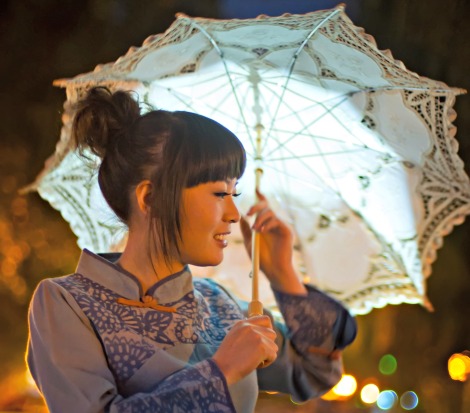
Trey RatcliffA woman sports vintage Chinese fashion in the Forbidden City.
It’s easy to get insulated with green-talk: The climate’s warming, so ride your bike, take public transit, shop secondhand, grow your own food, etc. These topics get burped up in the sustainability bubble again and again. So it’s awesome when Normal People start taking note!
Case in point: an article yesterday on Collectors Weekly titled, “Could the Clothes on Your Back Halt Global Warming?” I wasn’t familiar with the site, but from a cursory glance, its writers are more familiar with the finer points of coin collecting and art deco than the recommended upper limit for atmospheric CO2.
And yet there it is, a detailed introduction to fashion’s planetary impact: Producing clothes takes huge amounts of resources; items are discarded too quickly; and all of this waste is contributing to climate change. Buying vintage not only addresses a fashionista’s need for novelty; it also saves water and cuts down on greenhouse-gassy energy and pesticide-reliant cotton.
Plus, it’s one way to address fashion’s most pesky problem: fads. With the ’80s (or ’90s? I’ve lost track) coming back, Goodwill’s almost as likely to have high-waisted shorts and maxi skirts as Forever 21 — cheaper and sans guilt to boot.
Not that voracious style consumption is ever completely sustainable. As Collectors Weekly notes, “Even with all this [clothing] donating, the environmentally conscious residents of San Francisco put 4,500 pounds of fabric in the garbage an hour.”
Collectors Weekly goes a lot more in depth — if you’re into sustainable fashion, it’s definitely worth a read. With any luck, thinking about the global implications of your outfit will be fashionable for a long time.



